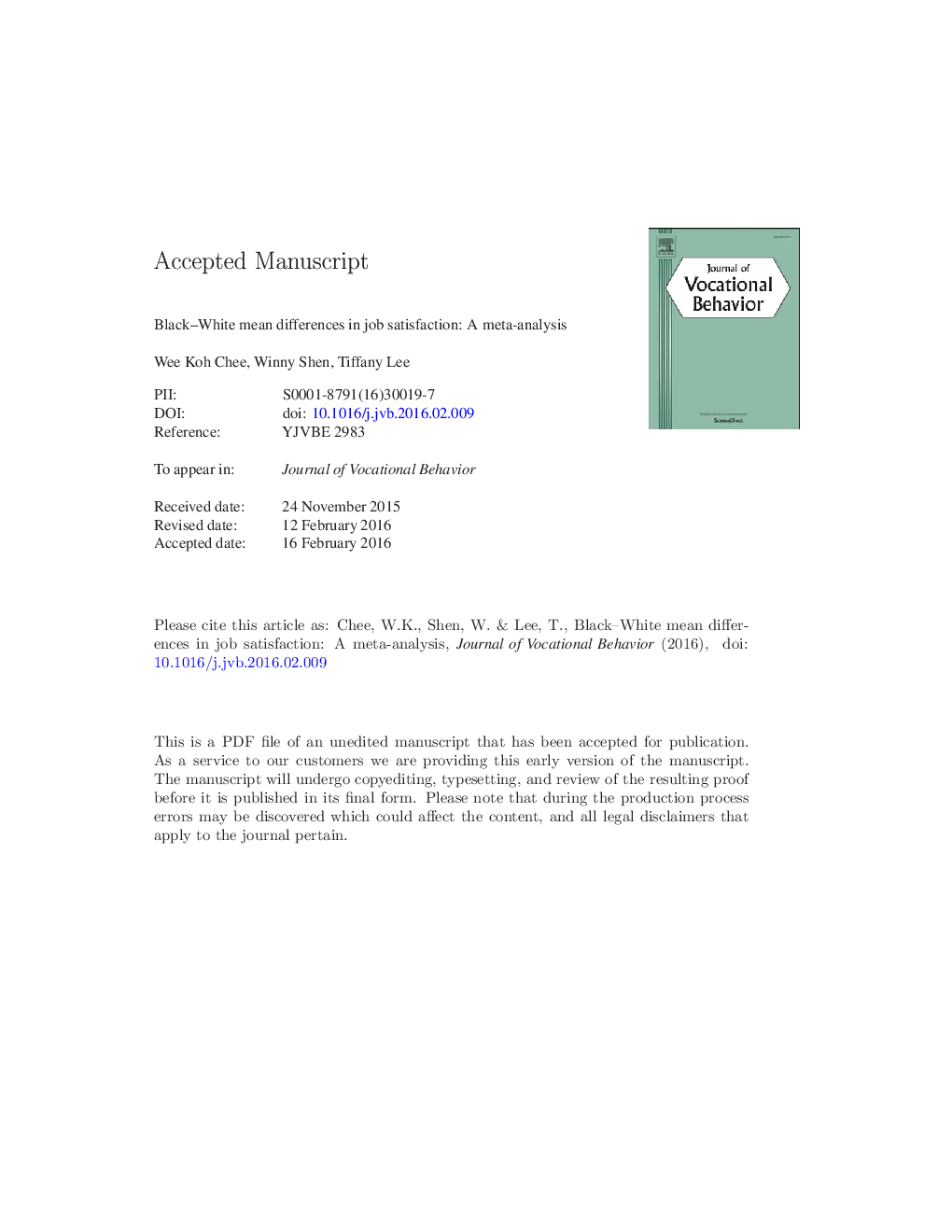| Article ID | Journal | Published Year | Pages | File Type |
|---|---|---|---|---|
| 7247563 | Journal of Vocational Behavior | 2016 | 47 Pages |
Abstract
Studies examining Black-White mean differences in job satisfaction have provided little clarity regarding whether there are meaningful differences between the two racial/ethnic groups on this job attitude. The present study sought to reconcile prior inconsistent findings via a meta-analytic synthesis of this literature (N = 753,791; K = 63 independent samples from 55 studies) and examined whether moderators explained the observed variability in effects. Using Hedges and Vevea's (1998) random-effects meta-analytic approach, we found that, on average, White workers were slightly more satisfied with their jobs than Black workers (gcorrected = .09; 95% credibility interval = â.21 to .39) and this effect was larger in more nationally representative samples (gcorrected = .24). The substantial true variability around this effect suggests the presence of moderators and the need for caution in interpreting the overall effect as it likely does not generalize across all work settings. Data collection year, geographic location within the U.S., job sector, and measure type were not found to moderate Black-White mean differences in job satisfaction. However, job complexity and sample demographic composition did significantly moderate this relationship. Our results show that the magnitude and direction of Black-White mean differences in job satisfaction are influenced by the context.
Related Topics
Social Sciences and Humanities
Business, Management and Accounting
Marketing
Authors
Chee Wee Koh, Winny Shen, Tiffany Lee,
